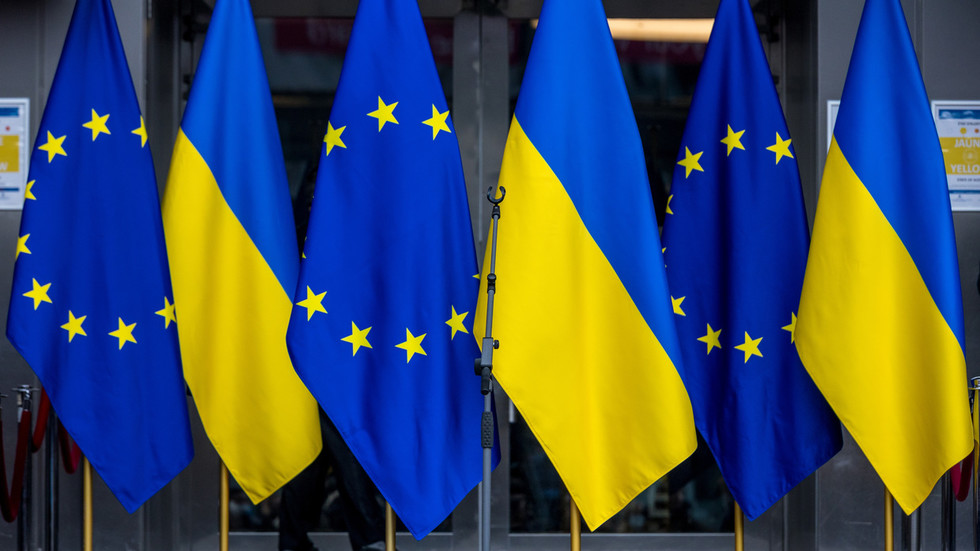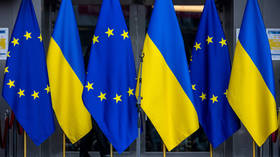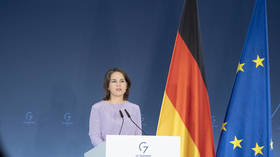
Austria and Hungary are among the bloc’s members expected to impede Kiev’s European integration

Flags of the European Union and Ukraine are seen at the entrance of the European Parliament during a demonstration in front of the European Parliament on March 01, 2022 in Brussels, Belgium. © Omar Havana / Getty Images
Several EU member states are likely to resist the proposed accession of Ukraine to the union, media outlet EUObserver has reported, citing an unnamed diplomat.
Kiev’s possible integration into the European bloc is set to be discussed by the 27 EU heads of government at a summit in Brussels in December, after the European Commission recommended this month that integration discussions should begin. But while the European Council is expected to back the plan, signs indicate that the process may receive pushback from several key member states, EUObserver said in a report on Thursday.
“For sure, Austria will be obstructive [to Ukraine’s integration], but it will hide behind Hungary,” the publication said, citing comment from the anonymous EU diplomat. “Despite its new rhetoric, France doesn’t really want Ukraine in the EU and Germany is playing a cynical game.”
Speaking in September, Austrian Chancellor Karl Nehammer rejected suggestions that Ukraine’s potential accession to the EU could be fast-tracked, saying that “there needs to be a level playing field because the European community must also take itself seriously through the membership frameworks it sets for itself.”

Read more
Hungary, though, is considered to be the main obstacle to Kiev’s European ambitions. Prime Minister Viktor Orban said this month that Ukraine was “in no way ready” to join the EU, but denied claims that Budapest’s objections are tied to a protest against the bloc withholding funds over alleged law and human rights breaches.
French President Emmanuel Macron also said last year that Ukraine is likely “decades” away from being a fully-fledged EU member, but has more recently called for “boldness” in pursuing enlargement of the bloc.
“They [Germany] want to force changes in the EU treaty in the name of enlargement, such as more qualified-majority voting,” EUObserver’s source continued. “The changes will give Berlin more power, but the Germans don’t really believe Ukraine will join.”
Earlier in November, German Foreign Minister Annalena Baerbock underscored Berlin’s stance of seeking to admit Ukraine to the EU, but admitted that “tedious” reforms would be required for a larger bloc to function. Baerbock also said at an EU expansion conference in Berlin this month that Kiev’s integration is a geo-political necessity as a “consequence of Russia’s war of aggression against Ukraine.”
EU leaders will decide at the summit in Brussels on December 14 and 15 whether Ukraine should be allowed to hold formal membership talks.




